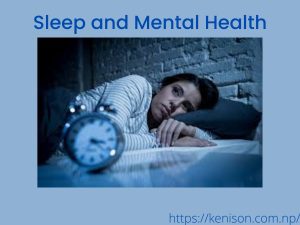Table of Contents
Everything you need to know about Insomnia: Sleep and Mental Health
 We all need to sleep well to help our bodies recover from the day and to allow healing to take place.
We all need to sleep well to help our bodies recover from the day and to allow healing to take place.
But a lot of us struggle to get a good night’s sleep. One in three of us suffers from poor sleep, and the consequences can be more serious than feeling grumpy or unfocused. Sleep and mental health are closely related: living with a mental health condition can affect your sleep, and poor sleep can affect your mental health.
Lack of sleep (Insomnia) can also make us feel physically unwell. It’s linked to heart disease, diabetes, premature ageing and road accident deaths. We all have nights when it’s hard to fall asleep or we find ourselves waking up several times. Most sleep problems sort themselves out within a month, but longer stretches of bad sleep can seriously affect our lives.
Many different things that can affect our sleep. They include:
- Stress or worry
- A change in the noise level or temperature of your bedroom
- A different routine, for example because of jet lag
- Too much caffeine or alcohol
- Shift work
- Physical or mental health problems
- Side effects from medicines.
How can mental health problems affect sleep?
Mental health problems can affect your sleep in different ways.
- Anxiety can cause your thoughts to race, which can make it hard to sleep.
- Depression can lead to oversleeping: either sleeping late or sleeping a lot during the day. It can also cause insomnia if you have troubling thoughts.
- Post-traumatic stress disorder (PTSD) can cause nightmares or night terrors. These may wake you up and/or make you feel anxious about falling asleep.
- Mania can make you feel elated or energetic so you might not feel tired or want to sleep. You may also have racing thoughts that make it hard to sleep.
- Medication can have side effects including insomnia, nightmares or oversleeping. Coming off medication can also cause sleep problems.
How can I improve my sleep?
There are many things you can try to help yourself sleep well.
- Establish a regular, relaxing bedtime routine that lets you unwind and sends a signal to your brain that it’s time to sleep.
- Create a restful environment: bedrooms that are dark, cool and quiet are generally easier to fall asleep and stay asleep in.
- Try to go to sleep and wake up at the same time each day.
- Exercise regularly but avoid vigorous exercise near bedtime if it affects your sleep.
- Avoid caffeine and alcohol before bed. They can stop you falling asleep and prevent deep sleep.
- Only use your bed for sleep or sex. Unlike most physical activity, sex makes us sleepy.
- Avoid using screens in the evening, including on smartphones and tablets. The light from the screen can have a negative effect on sleep, and social media, news and games can all stimulate your brain and make you feel anxious.
- Write down your worries if you lie awake worrying about tomorrow. This can help put your mind at rest.
- If you can’t sleep, don’t worry about it. Get up and do something relaxing like listening to music or reading until you feel sleepy.
If these symptoms (insomnia) are difficult to manage and are causing severe distress in one’s daily life, it is recommended to seek professional help.
Maintaining good sleep hygiene helps you to have a peace of mind and helps to cope out with different mental health issues. Addressing issues regarding mental health in proper time will help us to maintain our quality of life.
To consult with a psychiatrist in Kathmandu, Nepal, we have Dr. Kenison Shrestha at your service.

Dr. Kenison Shrestha, Psychiatrist – Mental Health Clinic
Recent Comments